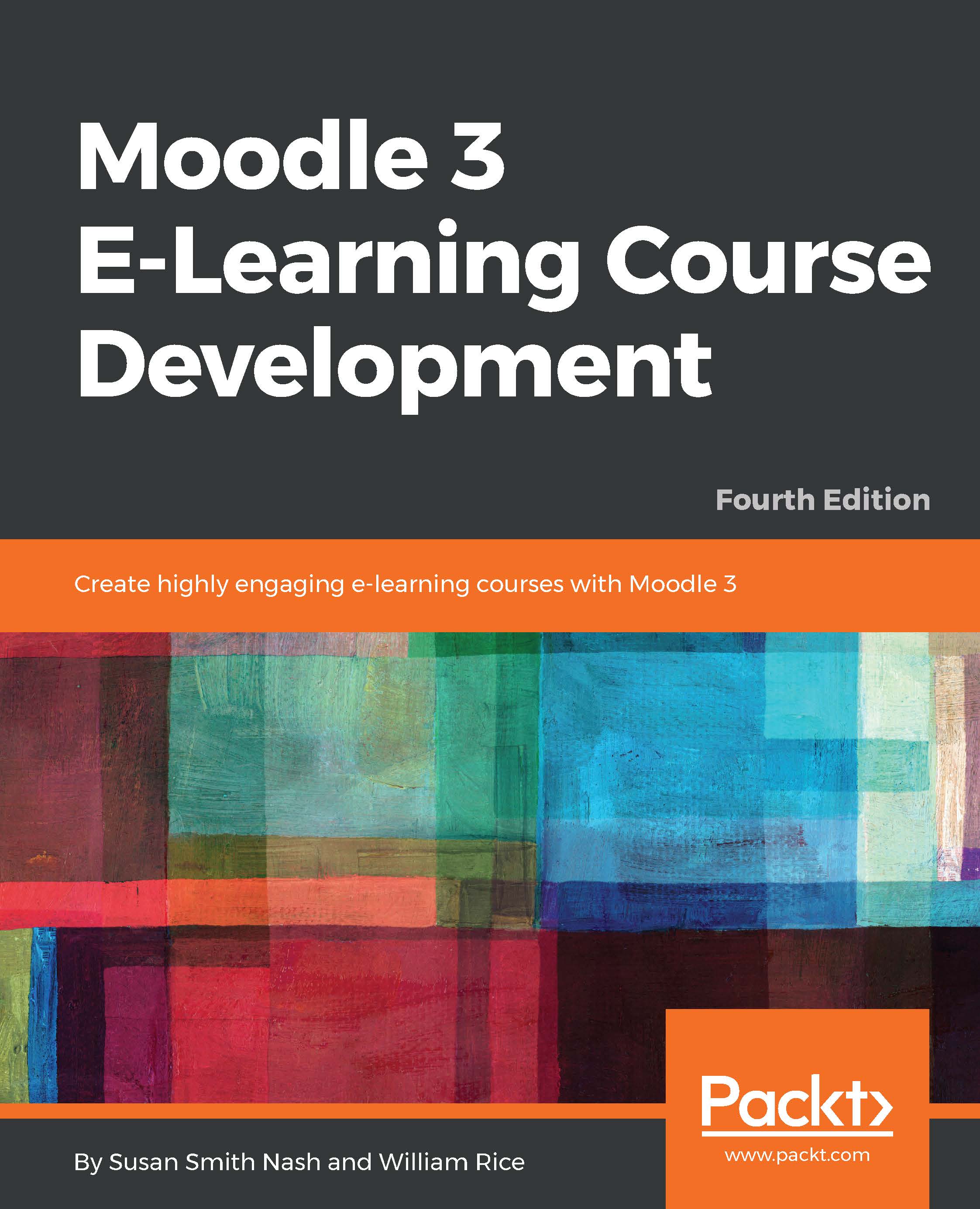As you develop your courses and curriculum in Moodle, it is important to plan well so that there is a level of consistency in the organization and presentation. Not only will you standardize your curriculum, you will also standardize your courses. At the heart of your organizing principles are the learning objectives. After that, you will include course material.
On Moodle, the course material is either a resource or an activity. A resource is an item that the student views, listens to, reads, or downloads. They can include web pages, links, files, videos, audio, and embedded social media.
An activity is an item that the student interacts with, or one that enables the student to interact with the teacher or other students. Examples include quizzes, assignments, wikis, forums, and more.
Usually, resources are ungraded, while...



